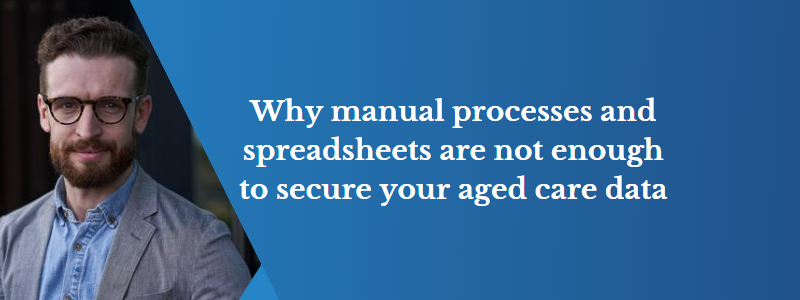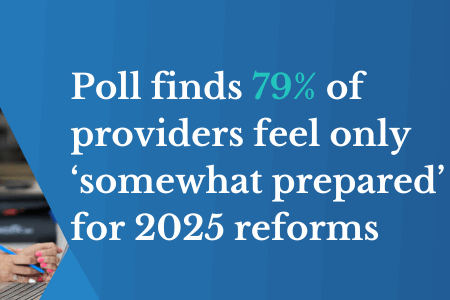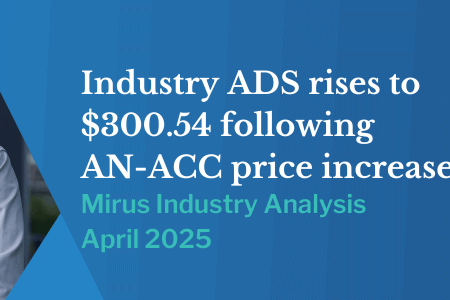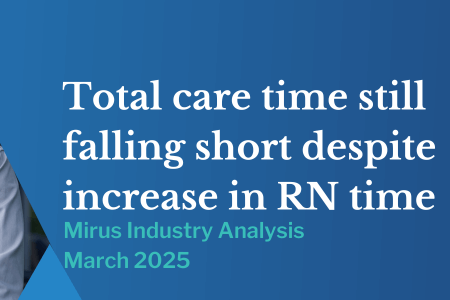Protect your Aged Care data with a secure platform
March 10, 2023 | Data

By Tom Murphy, General Manager Product & Operations
In today’s digital age, data security is a major concern for individuals and organisations alike. Data breaches and cyber-attacks have become increasingly common, and the consequences can be severe, ranging from financial losses to reputational damage. This spike in frequency has prompted the Federal government to pursue a new cybersecurity agenda, particularly following last year’s major breaches at Optus and Medibank.
Whilst the government contemplates its role in protecting industries and individuals from future cyber incidents, it is crucial aged care providers consider how they will continue to keep data safe. Key to this is ensuring current processes and platforms adhere to strict cybersecurity standards to manage sensitive data.
Concerningly, many individuals and organisations continue to rely on unsecure processes to manage secure data. These processes can include manual methods, paper-based systems, and spreadsheets. Whilst these methods are convenient and cost-effective, they are often not secure enough to protect sensitive data.
The new funding model AN-ACC has introduced new challenges for holding and managing resident level data so that timely decisions can be made. These decisions affect clinical funding and care minute requirements and therefore are critical to business performance. In the transition to AN-ACC, many organisations have adequate high level reporting but lack the resident and transaction level detail in that reporting to transact as required. Understandably, many organisations have begun to rely on short term solutions that are manual and spreadsheet related to understand that transaction level detail.
Mirus Metrics offers aged care organisations a secure platform to plan, manage and report on AN-ACC management.
Traditional and spreadsheet-based data management
Manual and paper-based systems involve storing data in physical form, such as paper records, documents, and files. This method is time-consuming as employees must manually enter data into physical documents and store them in a secure location. An aged care organisation might also utilise whiteboards or paper records to track AN-ACC assessments. However, paper-based systems are vulnerable to physical theft or damage, such as fires, floods, or other natural disasters. Additionally, paper-based systems can be difficult to track, manage and audit which can result in data loss or leakage.
Spreadsheets are also a powerful tool for managing data, but they are not secure enough to protect sensitive information. Spreadsheets are vulnerable to human errors, such as accidentally deleting or modifying data. Additionally, they can be easily shared, which can result in unauthorised access to sensitive data. Finally, spreadsheets are not scalable, meaning that as an organisation grows and requires more data, they become increasingly difficult to manage and version control becomes a nightmare!
A more secure approach
By contrast, software vendors invest significant time and spend to ensure their platforms and secure. In fact, they are often obliged to adhere to government and international cybersecurity standards, ensuring that sensitive data is protected. These platforms incorporate encryption, access controls, and auditing to ensure that data is only accessible to authorised users.
What should you be looking for in your software vendor?
- Compliance with internationally recognised security standards, such as ISO27001, to ensure that the platform meets the highest security requirements.
- Robust encryption and access controls to protect data from unauthorised access or theft.
- Regular audits and monitoring to identify and address any potential security threats or vulnerabilities.
- Seamless integration with existing systems and applications to facilitate data exchange and streamline workflows.
- User-friendly interface and accessibility across multiple devices to ensure ease of use and adoption by employees.
Secure platforms also offer automated processes, which reduces the risk of human error and streamlines data management. Additionally, they should offer scalability, meaning that as your organisation grows, the platform can accommodate more data without sacrificing security.
How do we ensure Mirus Metrics is secure?
In addition to following the guidelines outlined above, Mirus Metrics has followed a rigorous process with Services Australia before becoming an approved vendor. This involves meeting technical requirements, adhering to security and privacy protocols, and months of review by Services Australia to ensure their standards are met.
- Compliance with relevant government and industry standards for data security and privacy
- Integration with Services Australia’s systems and infrastructure, including the Provider Digital Access (PRODA) system
- Adherence to technical standards for data exchange, such as the use of secure messaging or standard file formats.
- Compliance with usability and accessibility standards, such as the Web Content Accessibility Guidelines (WCAG)
Admittedly, there are some benefits and minimal cost to leaning on manual processes and spreadsheets to manage your AN-ACC assessments. Ultimately, though, these are soon outweighed when you factor in the time spent on reducing the risk of data inaccuracies and cost of a data breach.
Fortunately, by implementing secure platforms such as Mirus Metrics, organizations can improve their operational efficiency and have confidence that their data is better protected against data breaches and cyber-attacks.
Secure your aged care funding data with Mirus Metrics. Protect sensitive data, improve operational efficiency, and gain confidence in your data management.


